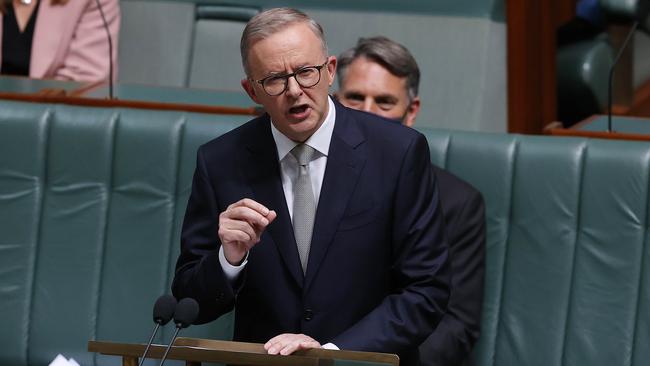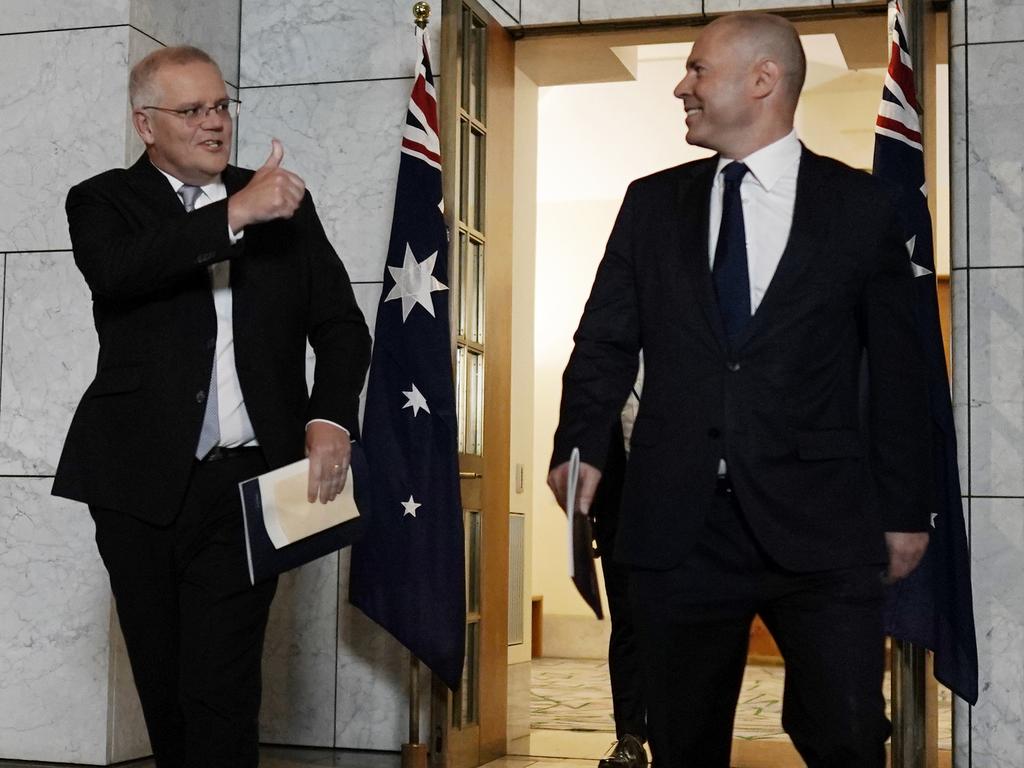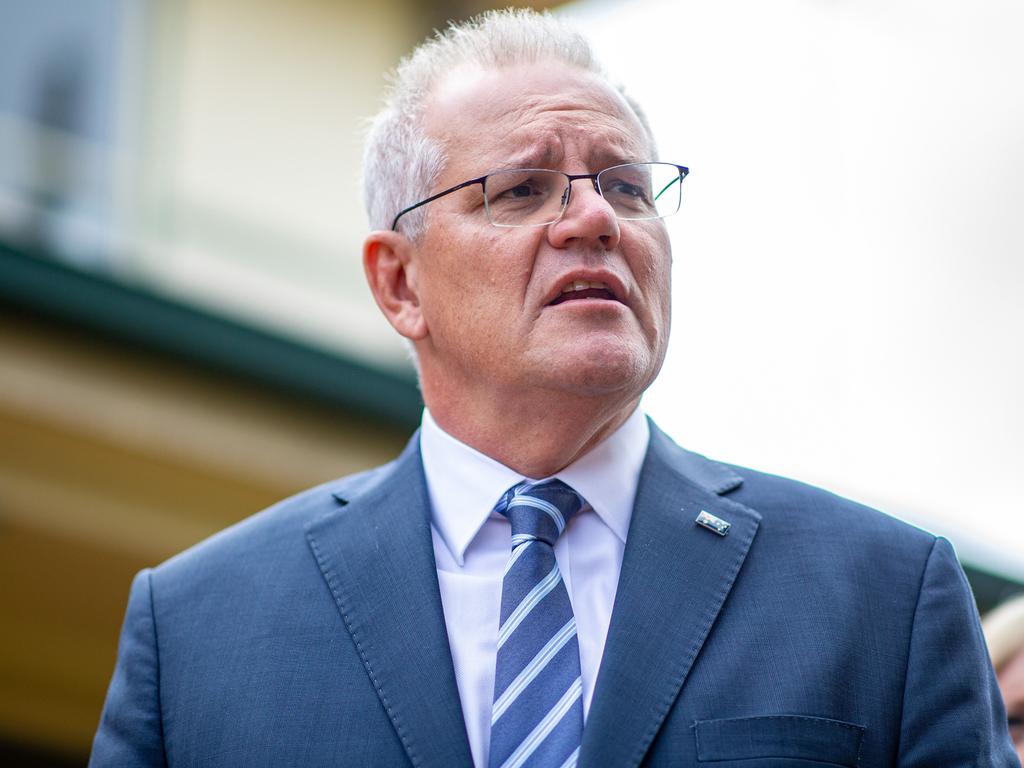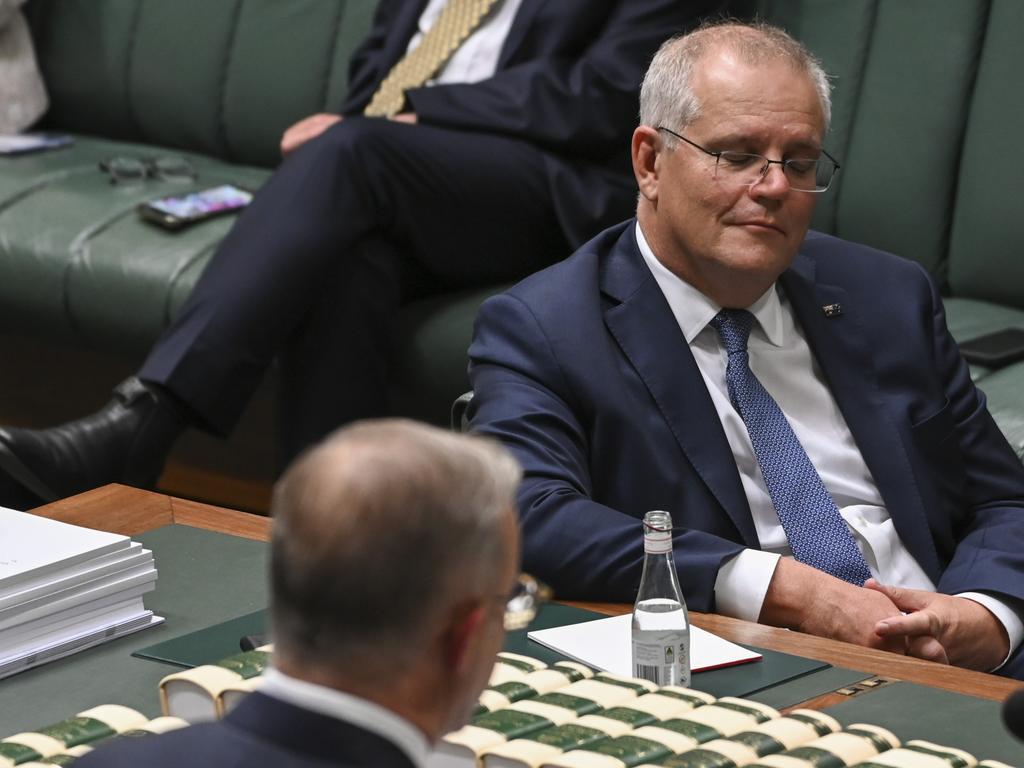
Labor lost the last election after expecting Australians to write a blank cheque for its uncosted campaign promises. Last week it reverted to type by offering the nation a budget reply without a budget. Both parties opened with motherhood statements, but the Coalition got down to business quickly with the headline figure that it had brought down unemployment to 4 per cent, the equal lowest figure in 48 years. The post-Covid economic recovery is built on Australians getting back to work. Women are leading the way, with the highest workforce participation on record, 62.4 per cent. The Prime Minister revealed the gender pay gap is 17.4 per cent lower than when the conservatives took office in 2013. For a party the green left relentlessly depicts as sexist, the Coalition is leading the pack on women in work.
Labor leader Anthony Albanese has delivered an alternative budget that reads like alternative truth. After hearing it, Australians are none the wiser about how Labor plans deliver on its promises or pay for them. Consider that Labor claims the ability to increase funding and salaries, make bills cheaper, medical care better, improve aged care, make housing more affordable and manufacturing more local while funding fee-free vocational education for 465,000, creating 604,000 new jobs and turning Australia into a renewable energy superpower. Yet its budget reply contains no detail of revenue, savings, tax rates, inflation or GDP. There is no costed plan to pay down the nation’s looming trillion-dollar debt. It is not so much a financial document as an example of anti-democratic governance that denies voters the information they need to make a reasoned choice about Labor’s capacity to govern.
Albanese’s big announcement on tackling the well-known deficits in residential care for the elderly is based on recommendations of the royal commission into aged care published last year. The Coalition has already budgeted $18.5bn to implement aged-care reforms. It will abide by the Fair Work Commission’s ruling on the Health Services Union bid to increase residential care worker salaries by 25 per cent.
Labor’s aged-care plans would add an estimated $2.5bn costing. Speaking to The Weekend Australian, Aged & Community Services Australia spokesman Paul Sadler said while the opposition idea for more funding was welcome, it fell well short of the amount required to implement the royal commission recommendations.
One of the key challenges for any Australian government of the future will be to manage the rapidly ageing population. It is extraordinarily poor management on the part of any state to permit providers in a large welfare sector to submit budget reports that are not itemised properly. A better system of evaluation would help considerably. Strengthening the plan to roll out unannounced workplace inspections is a reasonable idea given the grossly immoral behaviour of some providers that continue to deny our elderly citizens basic nutrition.
The Coalition steered Australia through a global pandemic that consumed much of the Morrison government’s term. Yet Australia emerged with its AAA credit rating intact and the equal lowest unemployment rate in 48 years. There are fewer people on welfare, more people in jobs and a pandemic recovery plan to get us out of debt slowly but surely if the government avoids reckless spending and we are spared serious external shocks. But if the past few years has taught us anything, it is that the future is uncertain and the best governments plan for the worst.
Rising inflation will increase cost of living for the foreseeable future. Neither party seems willing to say we will have to do more with less and tolerate a lower standard of living until the debt accrued across the world courtesy of the pandemic is paid down. No political party is running on an austerity ticket because the public is so averse to it. Governments must spend money we don’t have to appease the demands of voters and special-interest groups for whom no amount of taxpayer funding is ever enough.
The Coalition is focused on generating revenue to pay down debt and fund spending. While its latest round of stimulus payments will be popular, the combination of inflation and higher tax rates from 2023 will be a greater challenge. However, in the case of taxation, it is better the devil you know and how Labor will fund its latest campaign pledges remains an untold story.
The Coalition government has delivered a blow to opponents who wanted the election battlelines drawn on women and jobs. Its success in reducing the unemployment rate, narrowing the gender pay gap and increasing women’s workforce participation to the highest rate on record is extraordinary.
Labor wants to trump the Coalition but is constrained by negative campaigning and an economic plan that reads like it was devised by a panel of hollow men floating in a shadow land where fiscal reality is someone else’s problem.







Money matters. For individuals, work is a reliable way to make it; spending the easiest way to lose it. If governments want the wealth of the nation to rise, they create fertile conditions for workforce participation and spend as little taxpayer money as possible. Last year, the government and opposition agreed the election would be fought on jobs. When the Coalition delivered employment and women’s workforce participation figures, Labor changed its mind. Its new financial plan remains something of a mystery, but we are told it is about care and left to assume there is money to fund it.